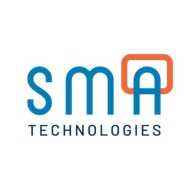


Find out what your peers are saying about BMC, Broadcom, JAMS Software and others in Workload Automation.
| Product | Market Share (%) |
|---|---|
| Control-M | 19.1% |
| OpCon | 1.7% |
| IBM Workload Automation | 6.2% |
| Other | 73.0% |



| Company Size | Count |
|---|---|
| Small Business | 24 |
| Midsize Enterprise | 12 |
| Large Enterprise | 112 |
| Company Size | Count |
|---|---|
| Small Business | 4 |
| Midsize Enterprise | 1 |
| Large Enterprise | 29 |
| Company Size | Count |
|---|---|
| Small Business | 16 |
| Midsize Enterprise | 29 |
| Large Enterprise | 19 |
Control-M by BMC is engineered to manage hybrid cloud workflows, offering orchestration capabilities starting at $29,000 annually. Aimed at helping growing teams, it efficiently supports cross-environment scheduling and automation needs.
Control-M offers robust cross-platform scheduling, automation, and integration with applications such as SAP and Informatica. Users appreciate its ease of use with a graphical interface, centralized management, and monitoring capabilities. Advanced features, including Managed File Transfer, automated error handling, and real-time alerts, enhance productivity. The ability to unify workflows and support diverse environments makes Control-M a trusted tool in many sectors. While improvements in reporting flexibility and API integration with tools like ServiceNow are needed, addressing performance issues during upgrades could enhance its value. Offering improved support for new technologies and cloud environments is beneficial, with cost-effectiveness being a consideration.
What are the key features of Control-M?Control-M is leveraged in industries like finance for enterprise scheduling and data management, supporting mainframe, Linux, Unix, Windows, and cloud platforms. It contributes to workflow orchestration and workload automation, improving operational efficiency and enhancing IT infrastructure across those environments.
IBM Workload Automation streamlines scheduling with automation and dynamic workload balancing. It integrates multiple platforms, offering efficient management across diverse systems, enhancing operational productivity.
IBM Workload Automation provides end-to-end control in managing tasks across varied platforms, supporting event-based scheduling and real-time updates. Its intuitive GUI allows seamless scripting and monitoring, facilitating integration with applications like SAP and Oracle. The inclusion of FTA agents ensures efficient local dependency management, while offering versatile scheduling options. Its capability to provide a comprehensive view, manage CPU usage, and meet service level agreements positions it as a valuable tool for large-scale operations.
What are the most important features?Industries such as government, banking, and large enterprises implement IBM Workload Automation for automated scheduling, workload balancing, and batch processing. It assists in migrating from legacy systems to web-based services, integrating with numerous applications, and managing extensive daily job lists. Key functions include offshore management and backend data collection, crucial for effective resource tracking. This adaptability enables organizations to efficiently support operations while scaling workloads as needed.
OpCon enhances automation with features like auto-scheduling and Corelation KeyStone integration, empowering users with self-service capabilities. Its intuitive interface and flexibility boost productivity, providing reliable automation and efficient file transfers.
OpCon is a powerful automation platform known for streamlining operations through features like auto-scheduling and robust integration capabilities. It facilitates seamless automation, allowing users to execute tasks without direct environment access and simplifies job dependencies. Users benefit from self-service capabilities, which enable easy task execution by non-IT staff, reducing errors and human intervention. With its modern interface, OpCon supports efficient file transfers and integrates effectively with multiple systems, enhancing productivity. While offering significant scalability, OpCon users suggest improvements in web functionality, script-writing, and graphical displays, along with enhancements in user authorization and notification systems. There is also a need for better template management, clearer logging, improved mobile accessibility, and expanded training resources.
What are OpCon's Key Features?OpCon is widely used in industries like financial services, where automation and scheduling tasks are critical. Financial institutions rely on OpCon for core processing tasks, including reporting, automated workflows, and vendor file exchanges. The platform handles high volumes of jobs across platforms, ensuring efficient operations and reducing reliance on manual processes.